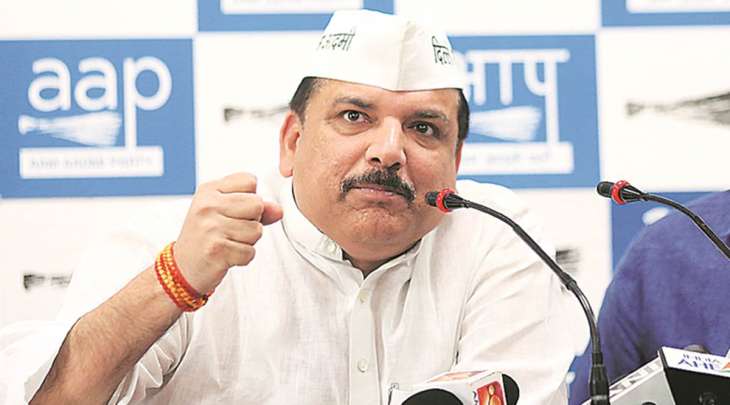The Enforcement Directorate on this Wednesday, raided the residence of the Aam Aadmi Party MP Sanjay Singh in connection with the Delhi excise policy-linked money laundering case. The residences of some other people who are linked to the case were also covered, officials said.
Sanjay Singh is a 51-year-old Rajya Sabha MP from the Aam Aadmi Party or AAP. His staff members and everyone linked to Mr. Singh were questioned by the Enforcement Directorate or ED in this case.

Aftermath of Sanjay Singh’s Arrest
After the arrest of the AAP MP Sanjay Singh, multiple angry AAP workers gathered outside his residence in the national capital and raised slogans against the center to express their anger and views regarding the arrest.
The raids on the Rajya Sabha members triggered a huge war of words between the members of the Aam Aadmi Party and Bhartiya Janta Party.
Delhi Chief Minister Arvind Kejriwal also led the AAP attack and said that the BJP was now resorting to absolute desperate measures as they are able to see their defeat in the coming 2024 Lok Sabha polls.
In response to Delhi Chief Minister Arvind Kejriwal’s comment, the BJP responded and countered him by calling him the “Kingpin” of the alleged liquor policy scam that took place. This was quite a serious allegation that was thrown toward the Delhi Chief Minister by the BJP.
It is alleged that the Delhi Government excise policy for 2021-2022 to grant licenses to liquor traders allowed cartelization to take place and caused favoritism to take place with the dealers paying the bribes and receiving the positive side of favoritism with the rest facing the negative of such biases.
The policy was later scrapped and the Delhi Lieutenant governor recommended a probe by the Central Bureau of Investigation or CBI following that, the Enforcement Directorate registered a case under the Prevention of Money Laundering Act, 2002.
Prevention of Money Laundering Act
Prevention of Money Laundering Act, 2002, or PMLA was made to fight against the criminal offense of the legalization of profit or income from an illegal source. The Prevention of Money Laundering Act, of 2002 provides the Government or the public authority the power to confiscate property earned through illegal profits. In much simpler words, money laundering is the conversion of illegally earned money into legal or legitimate money.
The Prevention of Money Laundering Act, of 2002, was introduced to fight money laundering with some objectives in mind that were desired to be achieved such as the prevention of money laundering, prevention of channelizing of money from illegal activities, penalizing the offenders who perform or support money laundering, and more.
The Act prescribes that any person found guilty of money laundering would be punishable with imprisonment from three years to seven years and where the proceeds of crime involved relate to any offense under the Narcotic Drugs and Psychotropic Substance Act, 1985, the maximum punishment may extend to 10 years instead of 7 years.



